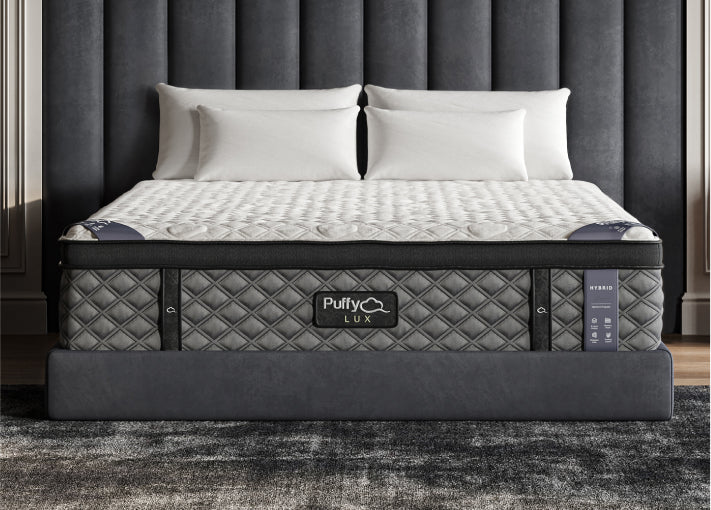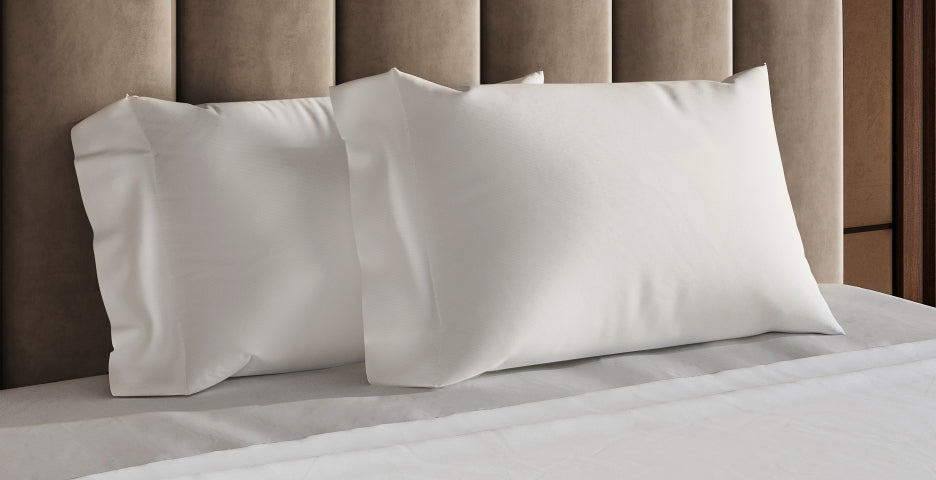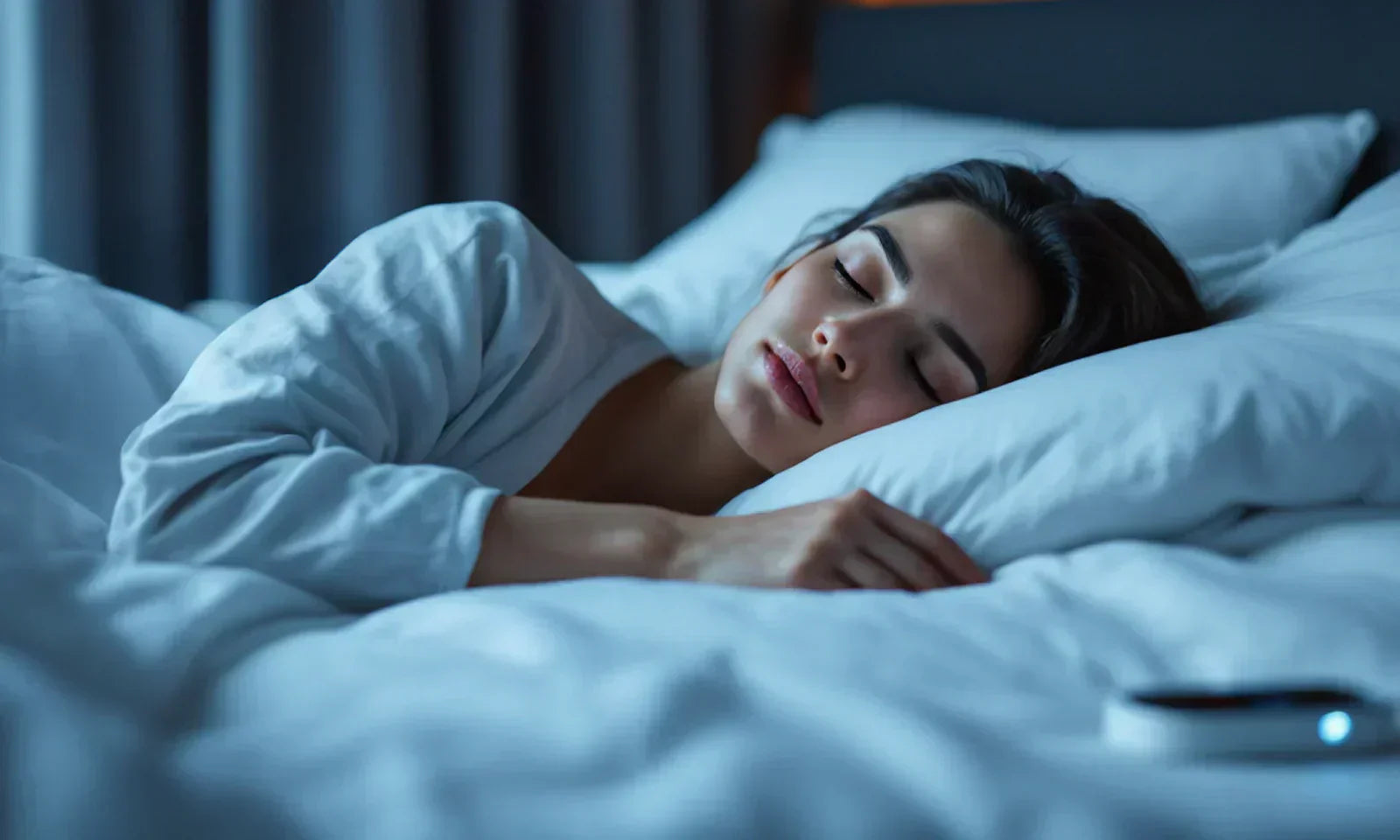Not all late-night snacking is created equally. If you're stuck with the urge of eating before bed, it’s important to choose foods that help you sleep better, and don’t disrupt how you rest in any way.
So how exactly do certain foods help you sleep better? While some foods are naturally energizing, others aggravate conditions such as indigestion, acid reflux, or irregular heart rates. Sleep-inducing foods tend to have chemical compounds that encourage your brain to slow down and boost the physiological processes involved in accessing deep sleep.
To take your sleep to the next level, you’ll need to understand the importance of proper sleep hygiene and the role a healthy diet plays first.
Table of Contents
What Is Sleep Hygiene?
Sleep hygiene refers to bedtime practices and habits that help as you prepare yourself for a good night’s sleep. There are plenty of ways you can improve your sleep hygiene that’ll result in better and deeper sleep.
Staying away from devices that emit blue light before you go to bed, avoiding midday naps, and ensuring your bed is set up to have the comfiest sleep possible are all examples of proper sleep hygiene.
The Role of Diet in Sleep Hygiene
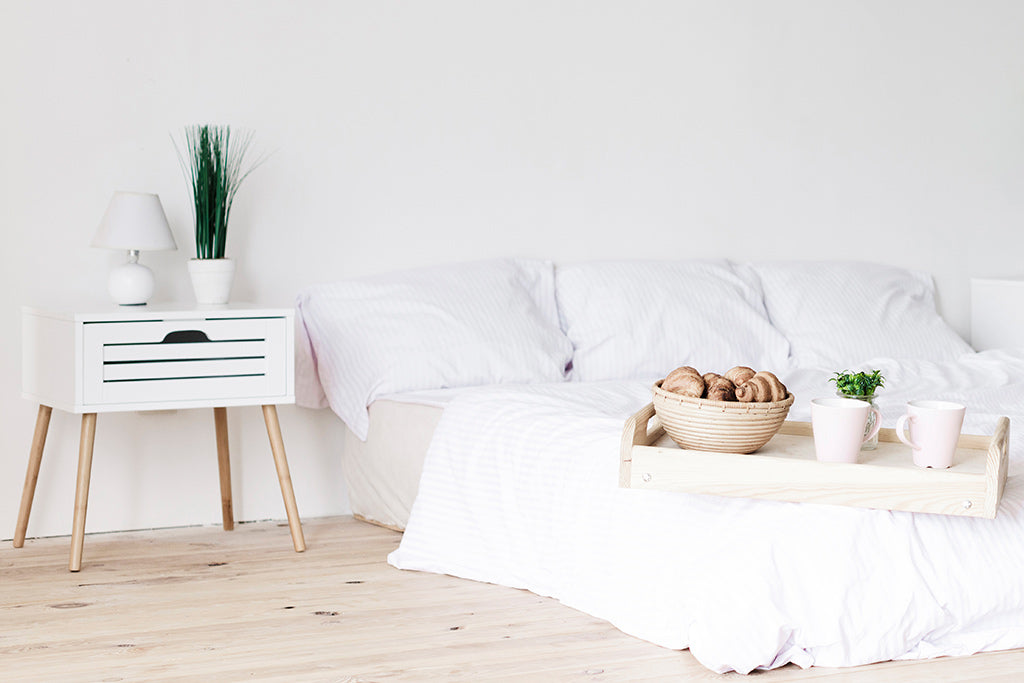
What you eat before bed makes up a good portion of having healthy sleep hygiene. Rich and fatty foods can trigger indigestion that makes it difficult to get comfortable at night time. For this reason, it is best to avoid heavy meals for at least 3 hours before sleeping to give your body enough time to digest.
What Are Foods You Should Avoid Before Sleep?
Fatty foods that are high in carbohydrates and sugar like chips, milk chocolate, candy, or baked products should be avoided before sleep. Eating sugar before bed spikes your blood sugar levels and gives you a rush of energy that’ll make you awake and agitated. It’ll also disturb your sleep cycle and can have health risks like obesity and diabetes.
Other things to avoid before sleeping are drinking caffeine like coffee or soda, and alcohol. Your last cup of coffee should be at least 6 hours before bed. Drinking caffeine at night will spike your energy levels and can make it very hard to fall asleep. It can also contribute to deteriorating sleep disorders like insomnia. As for alcohol, even though it makes you sleepy, it significantly disrupts your REM sleep (Rapid-eye movement sleep), which is the deepest stage of the sleep cycle.
Alternatively, some foods trigger your brain to produce more sleep-inducing hormones, such as melatonin and serotonin, which are released from the amino acid, tryptophan. These factors work together with your body’s circadian rhythm to regulate a healthy sleep cycle.
What Are Foods That Help You Sleep?
If you’re on the lookout for some foods that might help you sleep better, the following foods make a balanced and sleep-inducing dinner or a healthy late-night snack:
1. Kale
This dark leafy green is a superfood in more ways than just one. Rich in antioxidants and nutrients like calcium, kale can trigger melatonin production by transporting tryptophan into your brain and helps you get to sleep faster.
2. Sweet Potato
Not only do sweet potatoes make delicious snacks, but they’re also healthy and good for sleep. The chemical compounds present in sweet potatoes have been shown to help relax and lower your blood pressure.
3. Honey
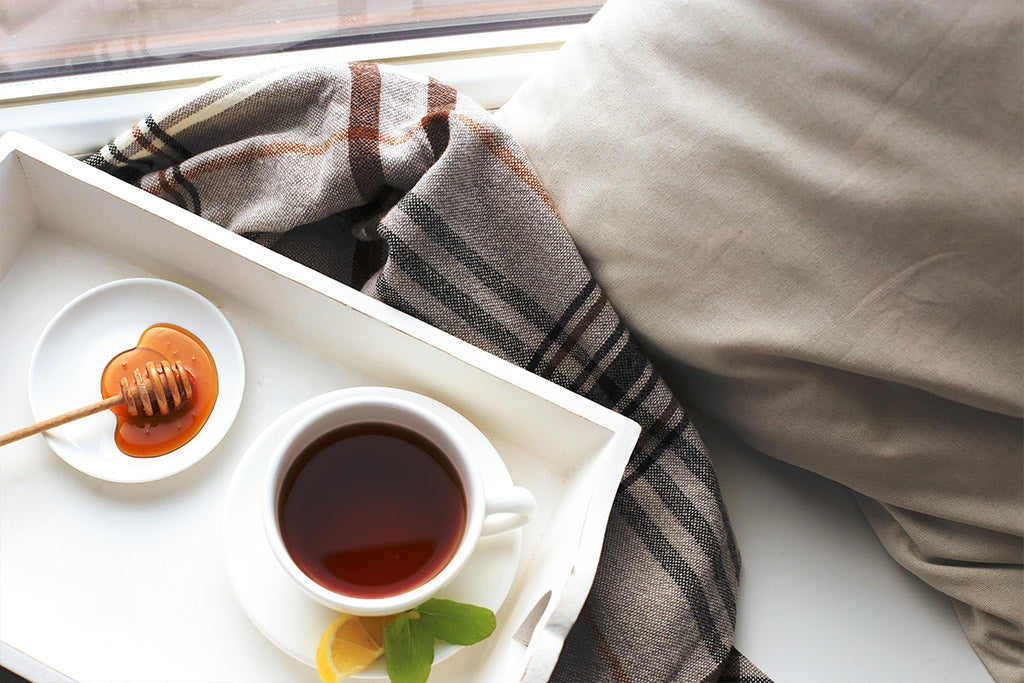
If you have a sweet tooth that gets stronger close to bedtime, having some honey on toast or with fruit gets the job done. The glucose present in honey can help reverse levels of orexin, which turns down levels of alertness in the brain, without the spike of energy you experience with artificial sugars.
4. Dark Chocolate
Dark chocolate, like honey, is a great healthy alternative for sugary snacks, while still encouraging better sleep. Researchers at the University of Edinburgh have uncovered a link between the magnesium present in dark chocolate and consistent circadian rhythms, which are vital for a good night’s sleep. It is also a well-known source of tryptophan and flavanols, which make you fall asleep faster and stay asleep longer.
5. Almonds and Pistachios
While mixed nuts are packed with healthy fats and vitamins for a balanced diet, when it comes to foods that help you sleep, almonds are especially beneficial. Packed with melatonin and magnesium, they’re beneficial to those who struggle with sleep deprivation - even a handful a night makes a difference.
Pistachios are another type of nut with plenty of health benefits, including helping you sleep better. They have the highest concentration of melatonin amongst the different varieties of nuts, so they’re a delicious option that’ll guarantee you sleep without interruption.
6. Dairy: Milk & Cheese
Cheese is rich in tryptophan as it is a strong source of protein, in fact, a gram of cheddar cheese contains more tryptophan than a gram of turkey! The calcium richness in milk, cheese, and other dairy products, helps the amino acid, tryptophan, do its job in making you fall asleep. Milk may help you fall asleep faster as it boosts serotonin and promotes relaxation.
7. Oatmeal
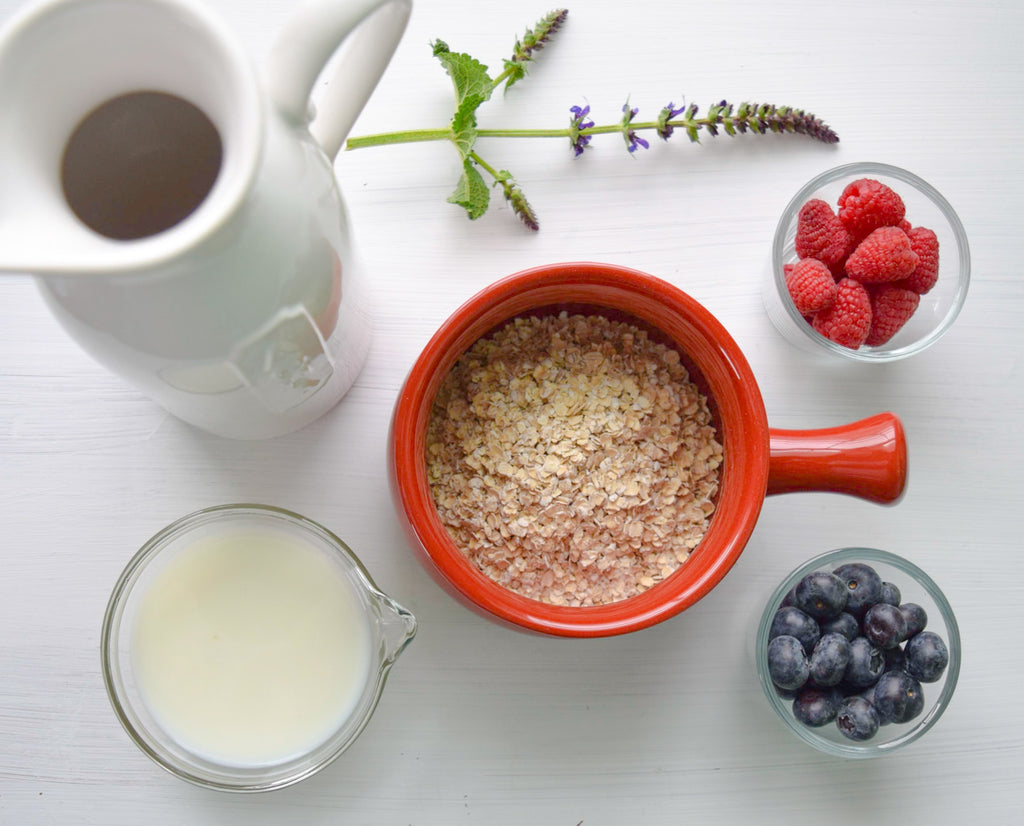
Oatmeal isn’t just good for breakfast - it is also a great late-night treat on account of it being a natural source of melatonin. Since oatmeal is naturally high in carbs, the spike in blood sugar it can cause promotes natural drowsiness shortly after.
8. Peanut Butter and Toast
Peanut butter on toast is a classic snack, and as it turns out, is great if you’re seeking a great night’s sleep. This is because peanut butter is generally rich in protein, which can grow levels of tryptophan.
If you want to avoid toast, spread some peanut or even almond butter on crackers for a healthy snack that won’t disrupt your sleep cycle.
9. Yogurt and Bananas
Researchers in Japan have found that consuming yogurt before going to bed might encourage a good night’s sleep. Bananas are a great fruit to eat before bedtime, for many reasons. They’re rich in tryptophan, magnesium, and potassium, making them the perfect late-night snack.
10. Hummus
Chickpea-rich hummus is rich in vitamin B6, folate, and tryptophan, all of which are shown to help if you’re looking to regulate your nightly cycle and sleep better. Vitamin B6 keeps your internal clock in check by producing serotonin, which will help calm you down if you’re struggling with sleep anxiety.
11. Watermelon
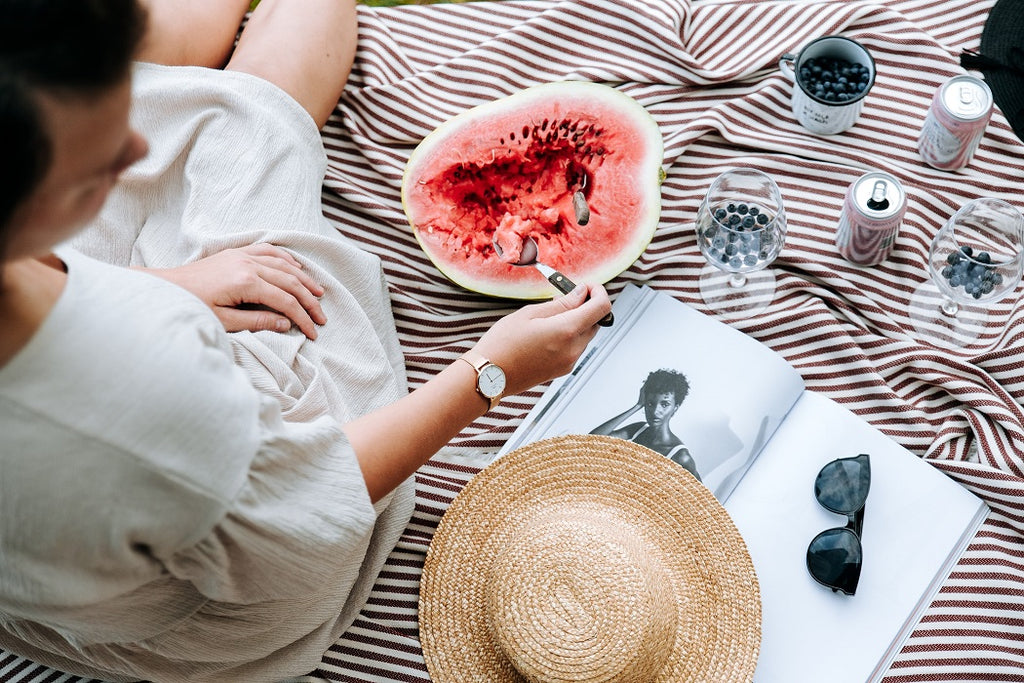
There are plenty of options when it comes to finding fruit that is both healthy and helps induce the right amount of sleep. Since watermelons are around 80% water, they’re a great hydrating snack that’s still delicious to eat right before it’s time to sleep.
12. Figs
Another fruit well worth investing in if you’re on the lookout for better sleep are figs. Full of potassium, magnesium, calcium, and iron, figs assist with blood flow and muscle contraction, which in turn help promote healthier sleep.
13. Prunes
Another common dried fruit recommended to eat on a regular basis for better sleep is prunes. They are high in nutrition and are full of vitamin B6, calcium, and magnesium, which all contribute significantly to a good night’s sleep.
14. Tart Cherries

If you prefer fresh fruits over dried ones, cherries are a great go-to when trying to sleep better. In one study published by the European Journal of Nutrition, researchers found that participants who drank cherry juice daily reported better and deeper sleep than people who didn’t.
15. Spinach
Another leafy green to incorporate into more of your meals, spinach is high in magnesium and calcium, both of which are essential to proper sleep cycles. Magnesium is a mineral that produces relaxation and releases tension from your nerves, while calcium plays a huge role in promoting REM sleep.
16. Turkey
One of the few types of meat included on this list, if you’ve sat through a Thanksgiving dinner, then you already know that drowsiness is a guaranteed side-effect of this festive meal. However, the surprise element may be that a “turkey coma” isn’t even real. Turkey is a protein high in nutrients that can boost your sleep quality. But the amount of tryptophan in a whole turkey isn’t enough to produce enough melatonin to make you sleepy.
17. Fish
Fish such as salmon, tuna, trout, and mackerel are rich in fatty omega-3 acids as well as vitamin D, a combination that has been known to boost the production of serotonin in the brain. In one study, researchers have found those who have a regular diet of fatty fish tend to fall asleep faster than those who don’t.
18. Lettuce
The final green on this list that’s ideal if you’re looking to combat sleep deprivation, lettuce contains a phytonutrient called lactucarium that has been shown to promote sleep and relaxation.
19. Chamomile Tea
A popular remedy for a stress-free sleep, chamomile tea is a soothing herbal drink that contains antioxidants called apigenin which latch on to specific receptors in the brain and induce sleepiness.
In one study conducted by the University of Michigan, scientists discovered people who consumed chamomile tea on a regular basis went to sleep faster.
20. Passionflower Tea
Passionflower tea can reduce anxiety due to the amount of antioxidants present, and minimizes stress. Studies that cover the consumption of passionflower tea rated their sleep quality better than those who don’t.
FAQ
What foods are high in melatonin?
Having a light and healthy snack before bed can promote better sleep and a healthier sleep cycle. There are many foods that aid in the production of melatonin, but the most prominent ones are tart cherries, nuts, fish, yogurt, and milk.
What to drink to sleep faster?
Herbal teas, like chamomile tea and passionflower tea, are powerful sources of antioxidants and nutrition. These drinks are known to reduce stress levels, boost serotonin, and promote calmness. Another sleep-inducing drink to consider is milk, which is rich in tryptophan and calcium - making you fall asleep faster.
What foods help you fall asleep?
There are many healthy foods that help you sleep, these include kale and other leafy greens, nuts, fish, cheese, milk, yogurt, avocado, peanut butter, and dark chocolate. You can make snacks like a tuna salad, peanut butter toast, cheese with crackers, or avocado toast for a nighttime snack that’ll help you sleep well. Some of these foods can even help in weight loss as they’re easily digested and full of nutrients.
Does bread help you sleep?
Baked products like bread, pasta, rice, and pastries, are high in carbs and sugar. These foods will make you feel heavy and drowsy yet have a negative impact on your sleep quality. Not only do they present a lot of health risks, but they also disrupt your sleep quality because they’re hard to digest and they reduce serotonin levels.
Conclusion: Foods That Help You Sleep As A Bedtime Snack
If you’re looking to sleep better and are wondering how to counter a poor sleep cycle, switching up your diet might be the best way to do this!
With the right foods that help you sleep integrated into your wider diet, you’re going to be that much closer to a more balanced lifestyle, as well as a good night’s sleep that’s worth eating that extra bit of kale for
Check out Puffy mattress reviews from real customers and see how we compare with other brands.
Disclaimer. We love sleep and we want you to get the best sleep possible. But we do not provide medical advice. This blog is intended for informational purposes only. It is not a substitute for professional medical info, diagnosis or treatment. Never ignore professional medical advice in seeking treatment because of something you have read on our blog.
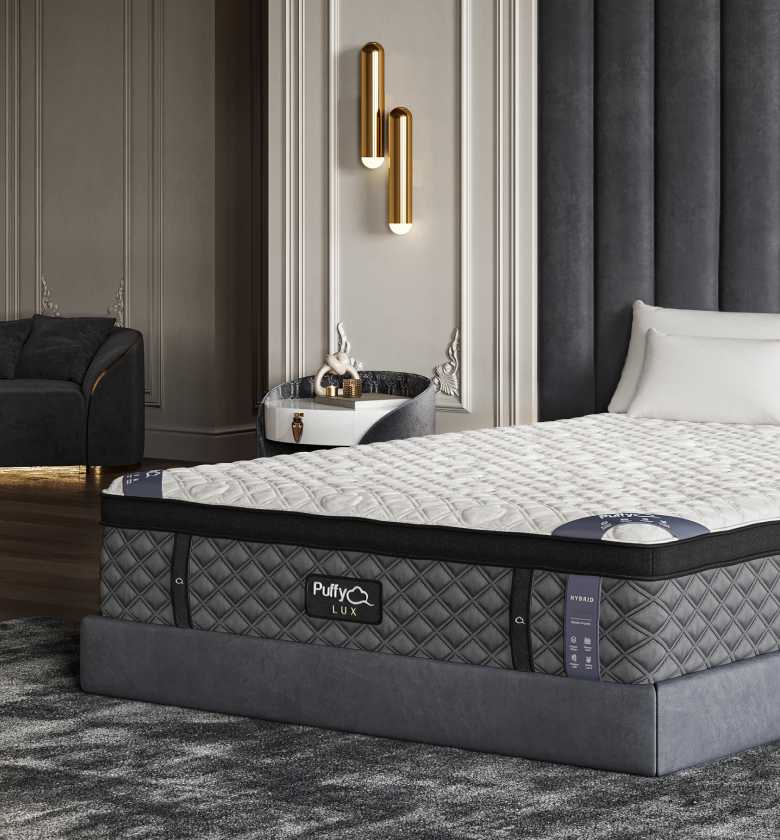
$1,350 in savings
Unlock your ultimate sleep solution with Puffy.
Explore our award-winning Puffy mattress collection with these extra luxury benefits:
- Award-winning comfort.
- Lifetime warranty.
- 101-night sleep trial.
- Free shipping and returns.
- 100% made in USA.

